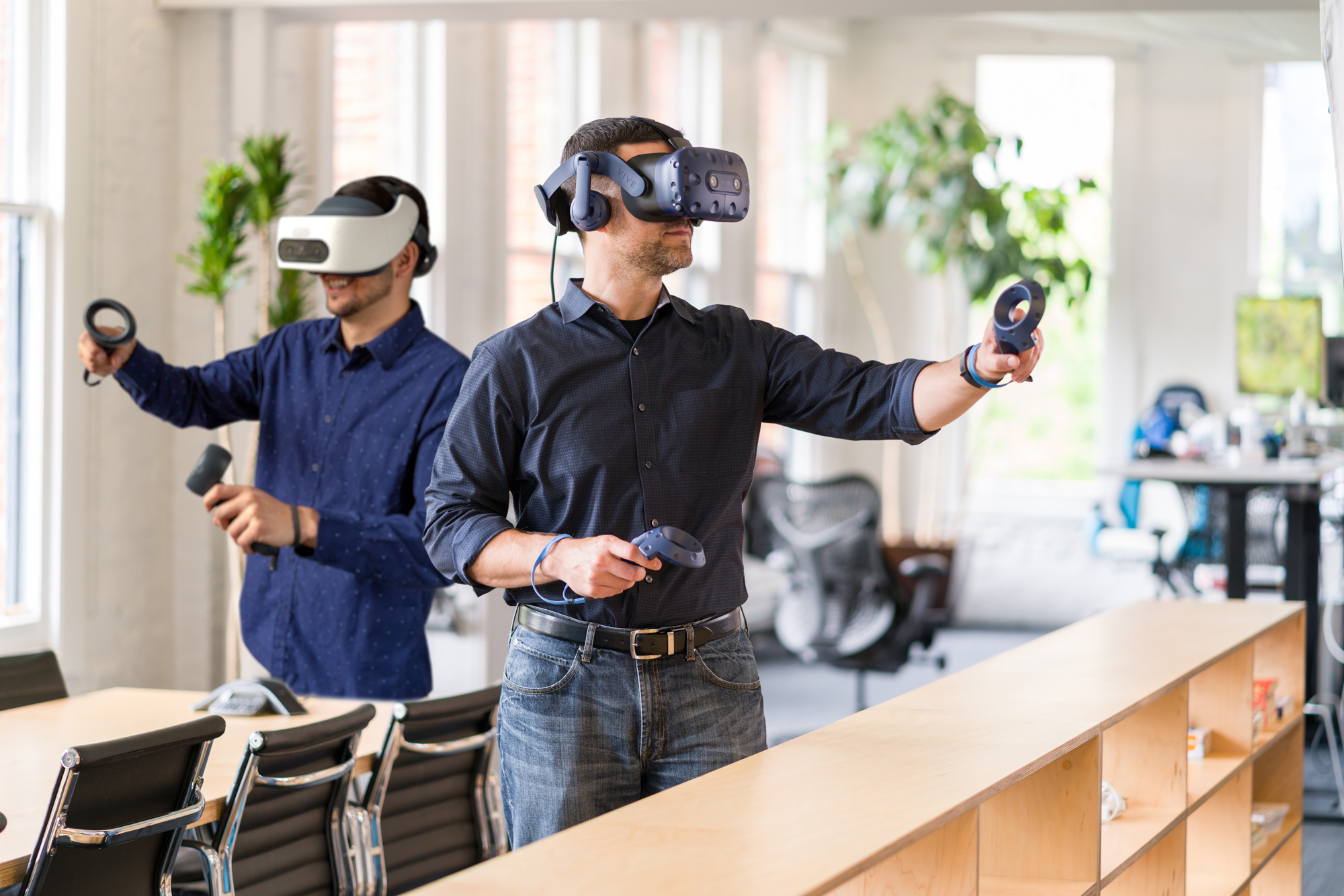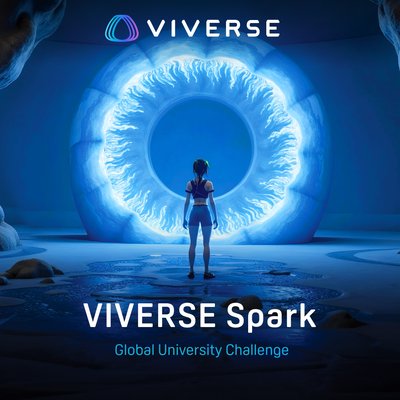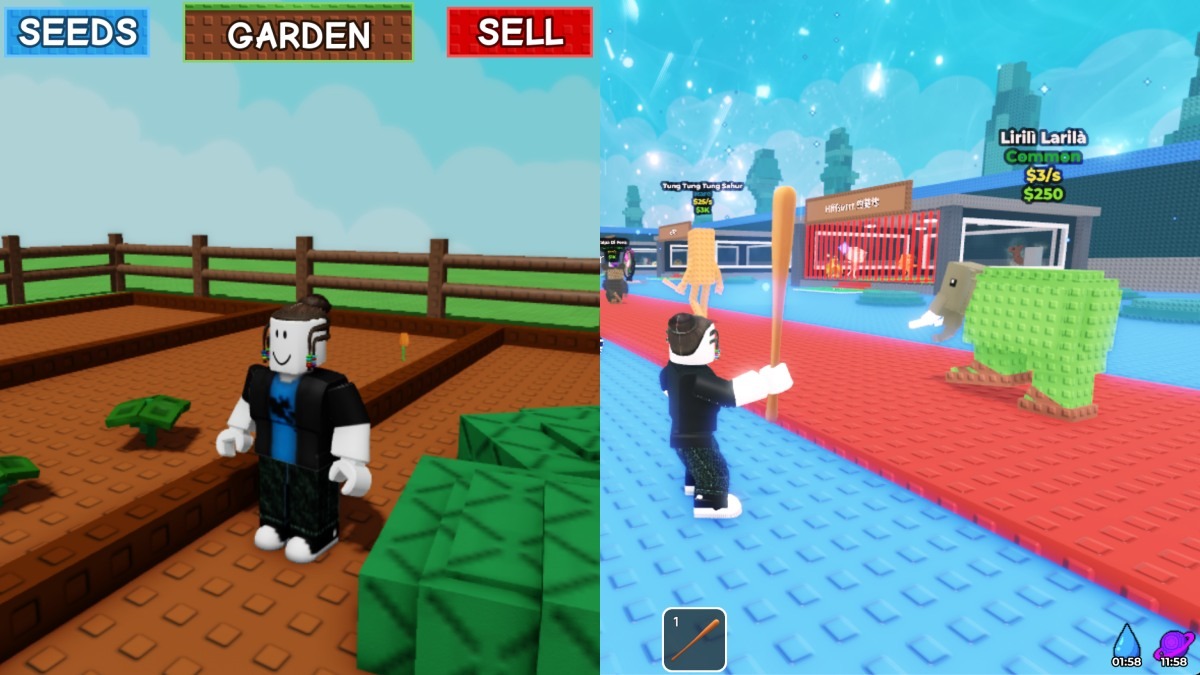You may be familiar with what VR can do in terms of gaming and immersive entertainment experiences. But, in addition to traveling to new worlds, battling zombies, and learning about other cultures, virtual reality has been an invaluable resource for the business community for many years. From engineering to research, to workplace training, and even customer experience, VR has helped to significantly evolve how businesses operate today. According to a poll commissioned by Grid Raster, nearly 91% of businesses surveyed have or plan to implement AR or VR technology. VR has made headway in nearly every industry, and it’s quite possible VR may have influenced your favorite product or service.
So, how does one even get started when evaluating VR opportunities for one’s business? Given the limitless opportunities and solutions VR offers, it can seem like a daunting challenge to find the best solution for your business. Well, the solution really depends on your needs. But, the best place to start may be with the headset, arguably the most important tool in the virtual reality arsenal.

Both HTC VIVE Pro Eye and VIVE Focus Plus are terrific VR headsets for your business.
Not all headsets are built the same, and they can serve very different purposes. Two of the most popular and versatile types of headsets are the PC-based headset (PCVR) and the all-in-one headset. Essentially, PC-based VR headsets are attached to computers via cable (or wirelessly connected via wireless accessory), while standalone or all-in-one (AIO) headsets have all the necessary components housed within the body of the headset. Let’s give you the lowdown on each and how they may work for your business.
PCVR: A VR Headset with Top-End Specs, Precision Tracking, Connected VR
PCVR continues to be a popular choice due to its technical specs. Since the headset is connected to a PC, much of the effort is done by the various parts of the computer; the CPU for speed, the GPU for visual fidelity, and the power supply unit for power. So, in essence, the VR headset taps into the full capabilities of whatever computer it’s connected to offering the best visual fidelity, refresh rate, and rendering quality while enabling the headset to run the most immersive content.

PCVR headsets, like the VIVE Pro Eye connect with computers to produce the clearest visual fidelity, fast refresh rate, and the most precise tracking
But, what’s outside the PCVR headset is another feature that sets it apart from AIO headsets. PCVR leverages outside-in tracking, meaning the headset and controllers get their room spatial awareness by communicating with base stations that are attached to walls or ceilings. The base stations then help map the room and constantly communicate with the headset to offer the most precise tracking (but don’t worry, all data is stored locally and never shared). This is incredibly important when the VR experience requires precise design elements or multi-user training.
Given PCVR is tethered to a PC, and requires set up of base stations, it is best employed for longer-term solutions or in fixed places. Although, there are many businesses that have found transportable PCVR solutions for events, education, and trade shows.
All-In-One VR Headset: Portable, Versatile, Contained VR
The main differentiation with AIO headsets is the absence of any cables or external processing assistance, like a computer. Where PCVR is the host to the computer’s specs, AIO has a dedicated CPU, GPU, and power supply all tightly packed underneath its shell, and usually runs off a processor designed specifically for mobile VR. AIO also uses what’s called inside-out tracking, where the headset actually plays the role of the base stations, using the sensors and cameras on its face to understand its position relative to the boundaries the user has established during setup. (Note, some PCVR headsets like our VIVE Cosmos also support inside-out tracking).
AIO headsets also tend to be wi-fi enabled, providing a seamless experience to download new apps, browse the internet, or even broadcast what’s happening in the headset to a tablet or other mobile device.

The HTC VIVE Focus Plus is an advanced all-in-one (AIO) VR headset that is completely wireless, offering portability and versatility.
The key benefit of the AIO headset is that it is completely wireless and portable, making it perfect for training, remote collaboration, rehabilitation at healthcare facilities, a unique presentation tool on the road, as well as many other valuable uses. Kiosk mode on the VIVE Focus Plus all-in-one VR headset enables businesses to limit access to apps and navigation and turn the Focus into a portable, powerful fixed-purpose device. With this user-friendly feature, trainees and clients can focus on only your enterprise apps.
VR Headsets Built to Suit Your Needs
As you can see VR is completely adaptable to just about any business need. At HTC VIVE, we understand the unique challenges businesses have, and in addition to offering both best-in-class PCVR and AIO VR headsets, we also offer complete business VR solutions with software and warranty services. If you are thinking now may be a good time to employ VR for your business, visit https://enterprise.VIVE.com to learn more and to speak with a business sales associate.





